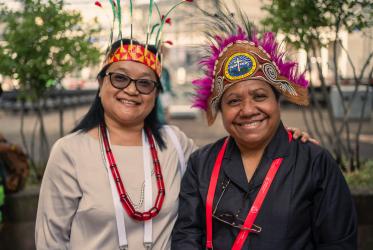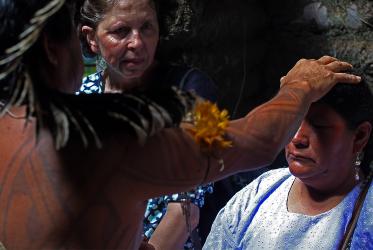Displaying 1 - 20 of 24
Thirty days that changed the ecumenical movement
23 October 2023
Konrad Raiser shares ecumenical journey of transformation
06 February 2018
Hielke Wolters: Apostle of mission strategies
01 August 2016
Joint Working Group: 50 years of mutual commitment
22 June 2015
WCC adopts statements on contemporary public issues
12 September 2012
French Polynesia should be decolonized, says WCC
05 September 2012
WCC supports Ecuador’s Yasuni project
13 October 2011
North Rift, Kenya: changing a volatile region
21 September 2005
WCC executive urges churches to exercise "unique potential" for peace
16 September 2005









